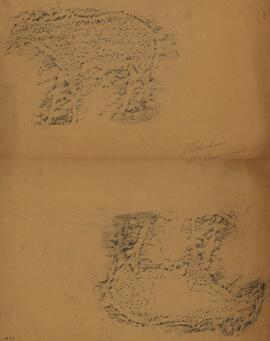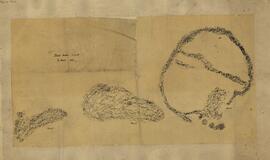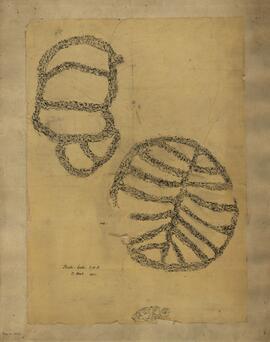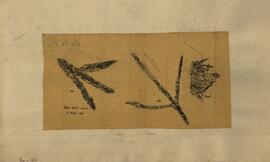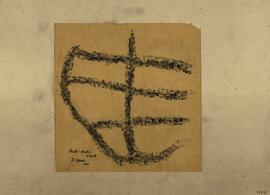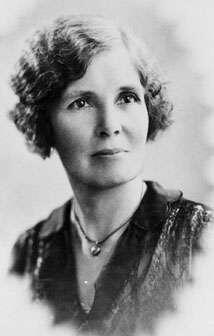Identificatie
referentie code
IZI WDB
Titel
Bleek, Dorothea
Datum(s)
Beschrijvingsniveau
Collectie
Omvang en medium
Collection of artifacts
Context
Naam van de archiefvormer
(20/04/2009)
Biografie
Created by: dduns009
Created on: 20/04/2009
Amended by: azizo
Amended on: 02/07/2009
Created on: 20/04/2009
Amended by: azizo
Amended on: 02/07/2009
Naam van de archiefvormer
Biografie
archiefbewaarplaats
Geschiedenis van het archief
Directe bron van verwerving of overbrenging
Inhoud en structuur
Bereik en inhoud
Waardering, vernietiging en slectie
Aanvullingen
Ordeningstelsel
Voorwaarden voor toegang en gebruik
Voorwaarden voor raadpleging
Voorwaarden voor reproductie
Taal van het materiaal
- Engels
Schrift van het materiaal
- Latijn
Taal en schrift aantekeningen
Fysieke eigenschappen en technische eisen
Iziko Museums of Cape Town
Toegangen
Verwante materialen
Bestaan en verblifplaats van originelen
Bestaan en verblijfplaats van kopieën
Related units of description
Aantekeningen
Aantekening
Background of the Recorder:Dorothea Bleek was born in 1873 in Mowbray, a suburb in Cape Town. Several years later in 1884, the family moved to Germany where she was trained as a teacher. It was only in 1904 that the family moved back to South Africa. She was the fifth daughter of Dr Wilhelm Bleek, the noted philologist, who, with his sister-in-law, Lucy Lloyd, pioneered the enormous task of recording the language and folklore of the /Xam and the !Kung in the late 19th century.
According to records, it was in 1905 that Helen Tongue introduced Dorothea Bleek to the processes of rock art recording in Cradock in the Eastern Cape, where Tongue had already been working. At the beginning of 1906, both made a train trip from Cradock to Bloemfontein and Ladybrand (Free State), where they continued recording various rock art sites. Most of the sites visited by Helen and Dorothea were identified from descriptions on George Stow's manuscript, Native Races of South Africa (1905). A second expedition by both was to the Malutis in Central Basutoland (Lesotho) in the summer of 1906/07. Their third and last expedition was a train trip to Fauresmith (Free State) and a wagon to Luckhoff in the Karoo (Western Cape). Bleek made further expeditions to various areas rich in rock art, in South Africa and neighboring countries. In 1910 she visited the area near Prieska in the Northern Cape, from where some of the San informants interviewed by her father and aunt had originated. Subsequent travels included trips to other parts of the Northern Cape, the eastern Transvaal, South West Africa (present Namibia), Bechuanaland (Botswana), Angola and Tanganyika (Tanzania).
In 1923 she published The Mantis and His Friends: Bushman Folklore, and after her death a Bushman Dictionary was published.
The notebooks she inherited from her father and aunt were donated to the University of Cape Town when she died in 1948.
According to records, it was in 1905 that Helen Tongue introduced Dorothea Bleek to the processes of rock art recording in Cradock in the Eastern Cape, where Tongue had already been working. At the beginning of 1906, both made a train trip from Cradock to Bloemfontein and Ladybrand (Free State), where they continued recording various rock art sites. Most of the sites visited by Helen and Dorothea were identified from descriptions on George Stow's manuscript, Native Races of South Africa (1905). A second expedition by both was to the Malutis in Central Basutoland (Lesotho) in the summer of 1906/07. Their third and last expedition was a train trip to Fauresmith (Free State) and a wagon to Luckhoff in the Karoo (Western Cape). Bleek made further expeditions to various areas rich in rock art, in South Africa and neighboring countries. In 1910 she visited the area near Prieska in the Northern Cape, from where some of the San informants interviewed by her father and aunt had originated. Subsequent travels included trips to other parts of the Northern Cape, the eastern Transvaal, South West Africa (present Namibia), Bechuanaland (Botswana), Angola and Tanganyika (Tanzania).
In 1923 she published The Mantis and His Friends: Bushman Folklore, and after her death a Bushman Dictionary was published.
The notebooks she inherited from her father and aunt were donated to the University of Cape Town when she died in 1948.
Aantekening
Collection obtained from: Iziko Museums of Cape Town
Aantekening
Collection owner image: WDB.jpg
Alternative identifier(s)
Trefwoorden
Onderwerp trefwoord
Geografische trefwoorden
Naam ontsluitingsterm
Genre access points
Beschrijvingsbeheer
Identificatie van de beschrijving
Identificatiecode van de instelling
Toegepaste regels en/of conventies
Status
Niveau van detaillering
Gedeeltelijk


